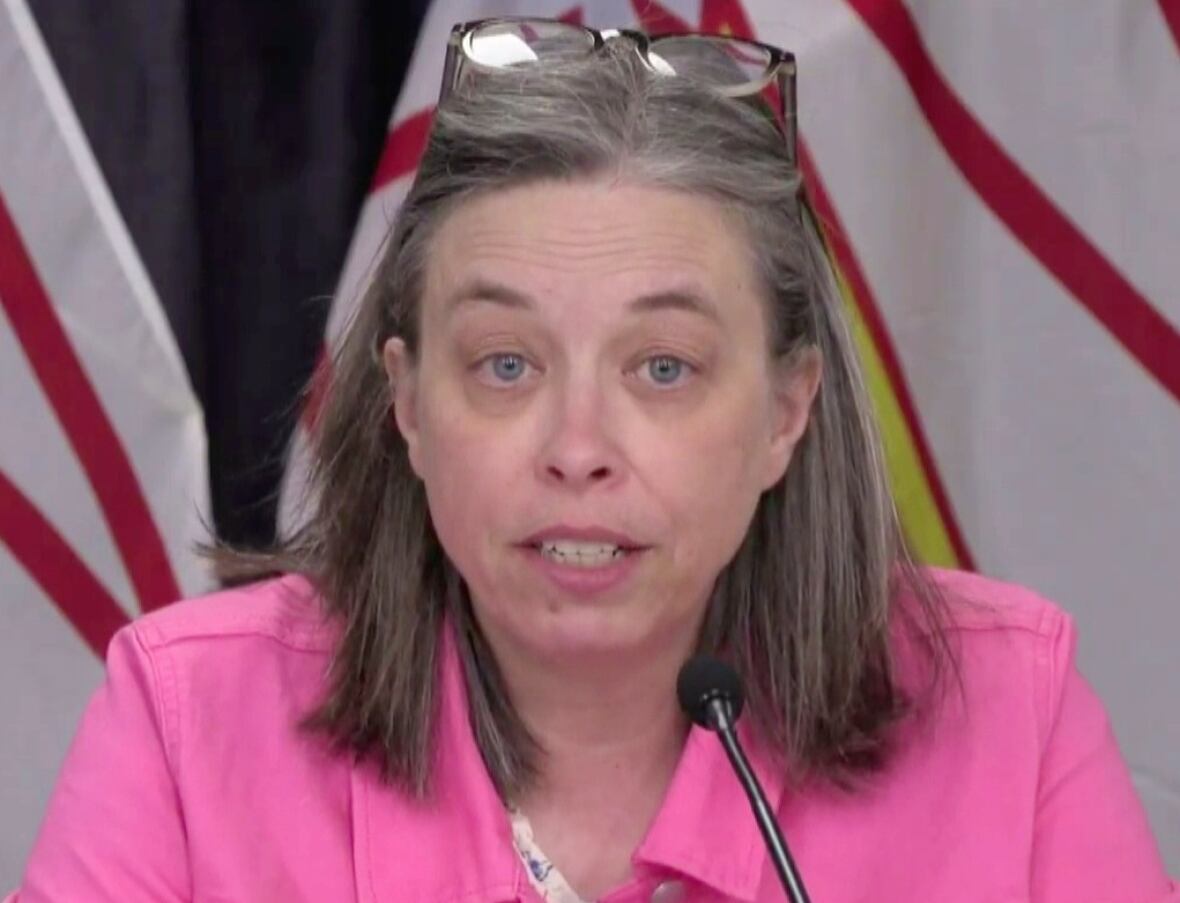'No movement' from N.L. to open travel to rest of Canada: premier
More than 10,000 travel exemptions issued as of July 19

Premiers of the Atlantic provinces held a conference call Tuesday night, and one of the topics on the table was whether to open the region up to travel from other provinces across Canada.
The next day it looked like little resolution had come out of that chat.
During Wednesday's in-person COVID-19 briefing, Premier Dwight Ball said there is still no departure from Newfoundland and Labrador's decision to keep its borders closed to anyone outside Atlantic Canada, given recent positive cases in the province and an uptick elsewhere across the country.
"We know that we have close connections to places like Alberta, places like Ontario, and even some of the reports that are coming out of those provinces within the last day or two it causes us to look at this very closely, and as we've always said, to monitor other jurisdictions closely," Ball said.
"There's no firm decision, as I've said, to open up to other Canadian jurisdictions."
As of Wednesday, Newfoundland and Labrador had two active cases, tied to travel from Ontario. Ontario has seen a spike in cases of COVID-19 in people under 40, while Alberta has recorded the most cases, per capita, in Canada in the last few weeks.
-
Alberta's COVID-19 response is fragmenting as a 2nd wave looms
- Ontario sees 165 new COVID-19 cases, mostly in people under 40
Chief Medical Officer of Health Dr. Janice Fitzgerald also said Wednesday the decision to open to the rest of Canada isn't only about the numbers.
While the recent increase in cases in some provinces is concerning, said Fitzgerald, from an epidemiological point of view, Canada is in a significantly better position now compared with when the pandemic was at its peak.
Fitzgerald said it's also important to look at the context of new cases.
"Sometimes an increase of cases may be related to an outbreak in a particular area that's in a particular facility, for example, that is then very quickly shut down," she said.
"So while you might see an increase one week, in the next week there might be a decrease, or two weeks later it might be back down to baseline again, especially if you're looking at some provinces that have low numbers to start with. A small change, or a change with very few numbers, can make it appear like a large change percentagewise. So we have to be careful about the way we interpret some of that information."

Maritime plans
No Maritime province appears to be making major changes in the near future.
Prince Edward Island Premier Dennis King said last week he is comfortable with the Atlantic bubble, and is not seriously considering expanding yet.
At the time, King said he had a brief conversation with P.E.I.'s Chief Medical Officer Dr. Heather Morrison about opening up beyond Atlantic Canada, and P.E.I. will not consider the option seriously until at least Aug. 1.
Meanwhile, New Brunswick Premier Blaine Higgs is looking to Aug. 1 to potentially expand its travel bubble with day trips into two small border regions of Quebec, noting that excludes most of the province, where the number of cases continues to trend upward.
"This is a regional connection here by twinning some communities that have a way of life back and forth, and we will control that, so they can get back to a new normal," Higgs said Tuesday.
In Nova Scotia, where Premier Stephen McNeil has mused about reopening to Canada, a family doctor called that idea "reckless" and said the province's ability to track people coming across its borders was flawed.

N.L. travel increase
On Wednesday, Ball updated N.L.'s travel exemption numbers.
Since exemptions were instated on May 4, Ball said just over 10,000 had been issued as of Sunday, allowing travellers to enter Newfoundland and Labrador.
Ball said the busiest border crossing is between Labrador West and Fermont, Que. — a border region that has had its own regional travel bubble since late June — where 370 people crossed into the province on Tuesday alone.
"This has been consistent, around 40 per cent of the total number of people coming into Newfoundland and Labrador," he said.
If any changes are made to the Atlantic bubble or to travel regulations, said Ball, the public will be notified well ahead of time.
Ball added the province still has "very stringent" information gathering at all points of entry, which helps contact tracing in the event of a new case.